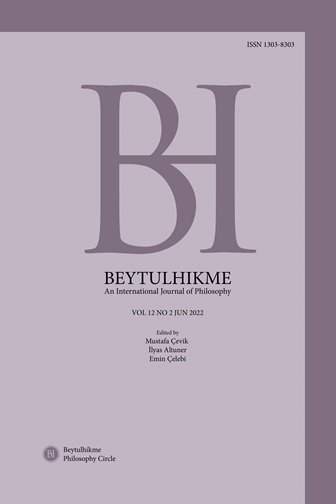Author :
Abstract
Patristik felsefenin ve Hristiyanlığın en önemli temsilcilerinden Augustinus “ilk evlilik teologu” olarak da anılmaktadır. Manastırcılıkla birlikte Hristiyanlığın en önemli unsurlarından biri haline gelen cinsel ilişkiden uzak durma eylemi bir ideal olarak sunulduğunda bu durum evliliği idealin karşıtı, kötünün iyisi yapmaktadır. Ancak evlilik Tanrı’nın insanı yarattığında tasarladığı bir birlikteliktir ve Tanrı’nın emridir. Bu çelişkiden yola çıkan Augustinus De Bono Coniugali adlı eserinde evliliğin kendiliğinden sahip olduğu iyileri açıklamaktadır. Augustinus’un söz konusu eseri çalışmamızın odak noktasını oluşturmaktadır. Ancak eserdeki düşüncelerin inşasında olası katkılarından dolayı Roma Hukuku ve kültüründe evlilik uygulamaları, pagan felsefesinde evlilik ile İsa ve Yeni Ahit uyarınca evlilik ele alınacaktır. Devamında yazılış amacı başta olmak üzere eserle ilgili önemli bilgiler aktarıldıktan sonra Augustinus’un görüşleri, içinde bulunduğu kültürün gerek hukuksal gerek felsefi gerekse de dinsel boyutlarıyla karşılaştırılarak değerlendirilecektir.
Keywords
Abstract
Being one of the most important representatives of the Patristic philosophy and Christianity, St. Augustine is also known as “the first theologian of marriage”. When abstinence from sexual intercourse, which became one of the most important elements of Christianity along with monasticism, is presented as an ideal, this makes marriage the opposite of an ideal and the lesser evil. However, marriage is a union planned by God upon creating the human being and is one of God’s commands. St. Augustine explains the good in the marriage itself in his work titled De Bono Coniugali based on this contradiction. St. Augustine’s aforementioned work constitutes our paper’s focus. Yet, the marriage practices in Roman law and culture, the marriage according to the pagan philosophy, and the marriage in accordance with Jesus and the New Testament will be discussed due to their probable contributions to the formation of the thoughts presented in the work. After giving the important information concerning the work, such as its purpose of it, St. Augustine’s arguments will be evaluated within the scope of his culture’s law, philosophical tradition, and religion.
Keywords
- Burke, C. (2015). The theology of marriage: personalism, doctrine, and canon law. The Cat- holic University of America Press.
- Clark, G. (1994). Women in Late Antiquity: pagan and Christian lifestyles. Oxford Uni- versity Press.
- Evans Grubbs, J. (2002). Women and the law in the Roman Empire: a sourcebook on mar- riage and widowhood. Routledge.
- Hunter, D. G. (Ed.). (2018). Marriage and sexuality in early Christianity. Fortress Press.
- Mantas, K. (1999). Marriage in the Roman imperial period. Polis. Revista de Ideas y Formas Políticas de La Antigüedad Clásica, 11, 111–134.
- Martinez, G. (2003). Matrimony, sacrament of. In B. L. Marthaler (Ed.), New Cat- holic Encyclopedia (Vol. 9). Thomson Gale.
- Matrimony. (1997). In E. A. Livingstone (Ed.), The Oxford Dictionary of the Christian Church. Oxford University Press.
- Walsh, P. G. (Ed.). (2001). De bono coniugali, de sancta virginitate. Clarendon Press.





